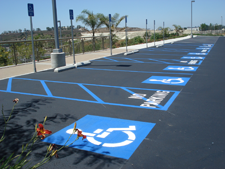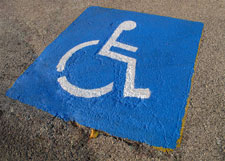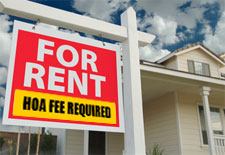*Asked & Answered
Asked – The HOA I manage is considering fencing off a portion of its common area to create a “Dog Park” for the residents to use? Can the HOA do this?
Answered – Maybe. However, our attorneys would strongly discourage the HOA from moving forward with the Dog Park based primarily on the following reasons:
1. Potential Conflict with the HOA’s Governing Documents: The HOA CC&Rs and/or Rules & Regulations may prohibit off-leash pets in common areas. An amendment to the CC&Rs and/or modification of the Rules & Regulations may thus be required so as to resolve any conflicts. While a modification to the Rules & Regulations is fairly easy to accomplish, amending the CC&Rs is often difficult–notwithstanding the expense the HOA will have to incur in the process. Additionally, HOAs are typically prohibited from maintaining anything in the community which serves as a nuisance to the HOA’s residents and guests (e.g., barking dogs).
2. Liability Exposure for the Association: There are many foreseeable circumstances where the HOA would be exposed to liability as a result of the Dog Park. It is not uncommon for dogs and people to be injured while using these types of parks. Having owners merely sign a waiver is not sufficient to completely insulate the HOA from liability–especially considering the likelihood that neighboring, non-HOA residents may try to use the Dog Park.
3. Insurance Concerns: The HOA’s insurance policy may not provide coverage for the Dog Park. Even if coverage is available, our communications with leading HOA insurance professionals echo the liability issues discussed above. Extending coverage to the Dog Park will likely cause an increase in the HOA’s insurance premiums. Moreover, any claims that are subsequently filed as a result of the Dog Park may cause those premiums to skyrocket. The most common Dog Park related claims are those where a dog knocks a person to the ground and causes injury.
 |
It is easy to understand why HOA Boards would desire to install such an attractive and endearing amenity–especially if you are a dog lover like the HOA attorneys and staff in our office. However, installing a Dog Park in a community that was not originally developed with one is likely not a good idea. HOA Boards should consult with their legal counsel to determine what additional issues should be considered in determining whether to move forward with the park.
|
 *New Library Article
*New Library Article HOA Lawyer Blog
HOA Lawyer Blog






 *New Resource
*New Resource

 The additional burdens that renters impose can be substantial for many common interest developments–especially those developments designed as “recreational communities.” Renters who lack a sense of investment in the community or who are unfamiliar with its operational structure can place greater strain on the community’s management and maintenance resources. This may not only frustrate other owners within the community, but may also significantly impact the financial health of the Homeowners Association (“HOA”) formed to preserve and protect it.
The additional burdens that renters impose can be substantial for many common interest developments–especially those developments designed as “recreational communities.” Renters who lack a sense of investment in the community or who are unfamiliar with its operational structure can place greater strain on the community’s management and maintenance resources. This may not only frustrate other owners within the community, but may also significantly impact the financial health of the Homeowners Association (“HOA”) formed to preserve and protect it.